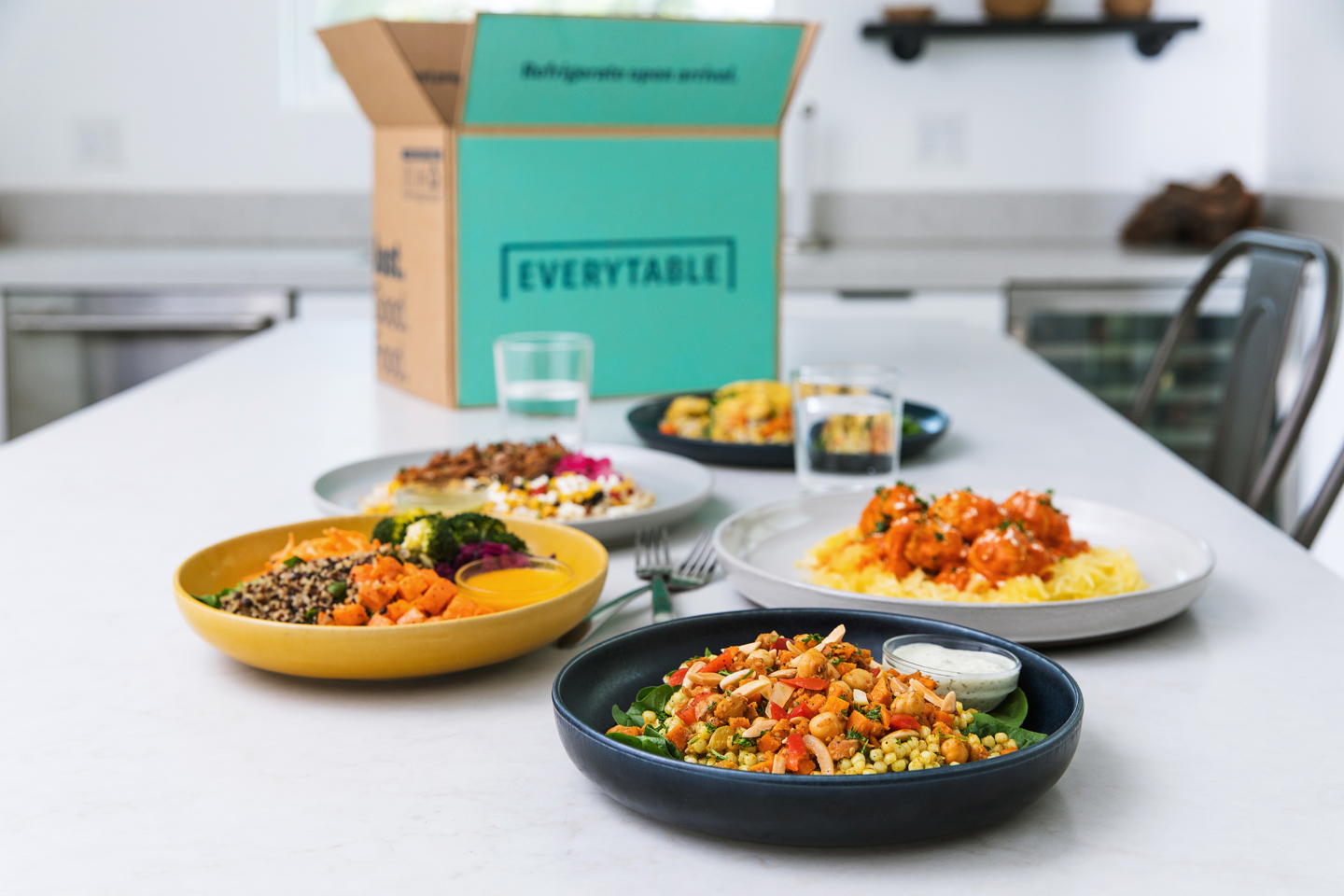The goal of prepared meal company Everytable is to make fresh food as affordable and accessible as fast food, said Clare Fox, VP of strategic partnerships at the company, during a virtual session at the NYC Food Waste Fair, last week.
The company, which offers nutritious meals through restaurants, vending machine,s and a subscription service, was founded by Sam Polk in 2013, who at the time, was working to provide families in South Los Angeles with healthy choices.
“When we think about feeding the country, we need to think about what is available to consumers and at what price point. These families wanted to eat healthy, but they just didn’t have the access,” said Fox.
Using McDonald’s as his inspiration, Polk built the Everytable business model to function like a fast food chain.
“We have one central location that prepares the food, which is then shipped out all over Los Angeles,” said Fox. “By producing mass amounts of food at a centralized location and distributing it out across the country, McDonald’s achieves efficiencies, which, in turn, drive down the price for the customer. Using the same business model helps keep our costs low so we are able to sell a fresh, healthy meal for $5 to $6.”
Though Everytable is currently based in Southern California, it hopes to achieve national distribution, shared Fox, with a dedicated focus on supporting local communities.
“We have to ask ourselves: are our efforts investing in local businesses and people? And are we putting diversity, equity, and inclusion at the center? It’s important for us to grow and share equitably. We’re trying to remove the barrier to entry for owning and operating an Everytable business. By changing the way we do franchising, we’re able to find entrepreneurs who are out there and lift them up.”
Fox also highlighted the importance of working together to make change on a global level.
“All of us have a huge role in advocating for the world we want; to make food available to everyone, where workers are treated right, where people have the ability to prosper,” she said. “We need to use our voices together to support market interventions and realize that it’s an all hands on deck effort, from local governments, non-profits, and social enterprises.”
However, she did point out that government aid is an essential part of the puzzle.
“Government budgets have a huge role to play in this; it takes resource reallocation. New Jersey signed a law earlier this year to invest $40 million a year for several years in the food system with the goal of ending food insecurity, which is great. But what if that happened 10 years ago? We could have been so much more prepared for the pandemic. Making upfront investments results in significant cost savings for society.”
Related: Just Salad Saves Waste From Landfills, Money; Farmers Need Consumers' Support to Tackle Food Waste: Panel.
Image: Everytable

